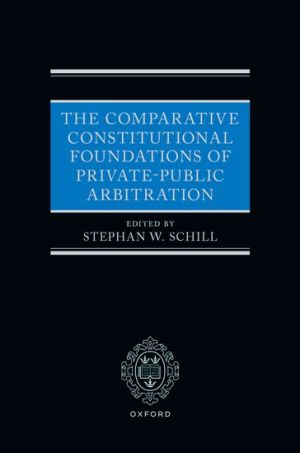
This book engages with the concerns the rising phenomenon of arbitrations between private and public actors raises for principles of constitutional law - including democracy, the rule of law, and the protection of fundamental rights. It analyses how party-appointed, one-off arbitral tribunals determine the delineation of private rights and public interests within a transnational legal environment and provides a framework that aligns this activity with constitutional values.
Featuring 20 chapters dealing with almost 40 jurisdictions from different corners of the world, the book examines how domestic legal systems and legal practice approach the involvement of public entities as parties to arbitration agreements and arbitration proceedings, to what extent the constitutional legal frameworks involved problematize private-public arbitration as a constitutional concern, and how different domestic legal systems ensure that private-public arbitration conforms to, and avoids undermining, the public interest. The chapters analyse, inter alia, whether the governing domestic law treats private-public arbitration differently from commercial arbitration between private parties, to what extent domestic law permits such arbitrations, what regulatory frameworks domestic law sets up, and what control mechanisms domestic law establishes in order to ensure that the public interest is safeguarded when public entities agree to have disputes resolved through arbitration rather than in domestic courts.